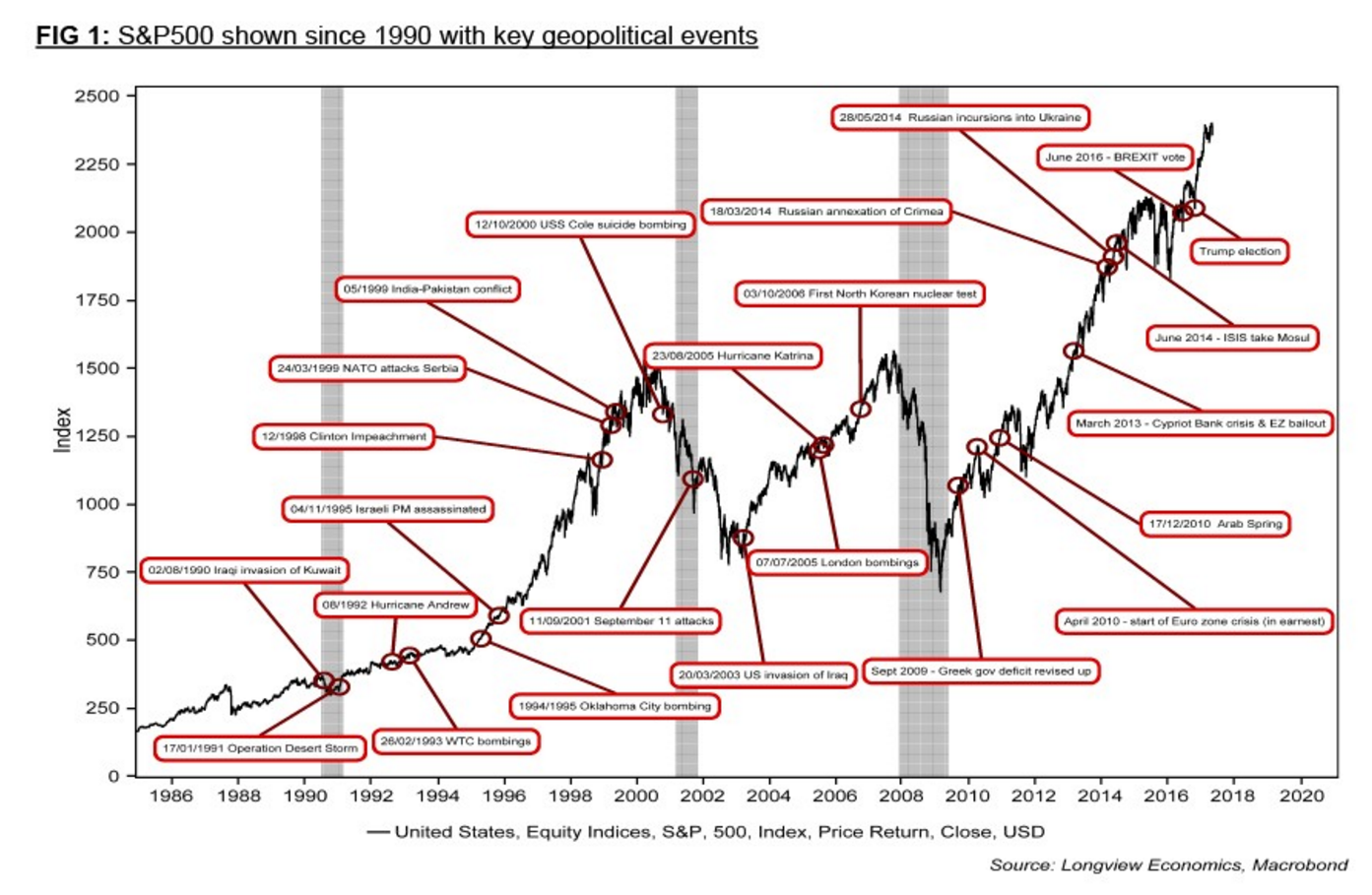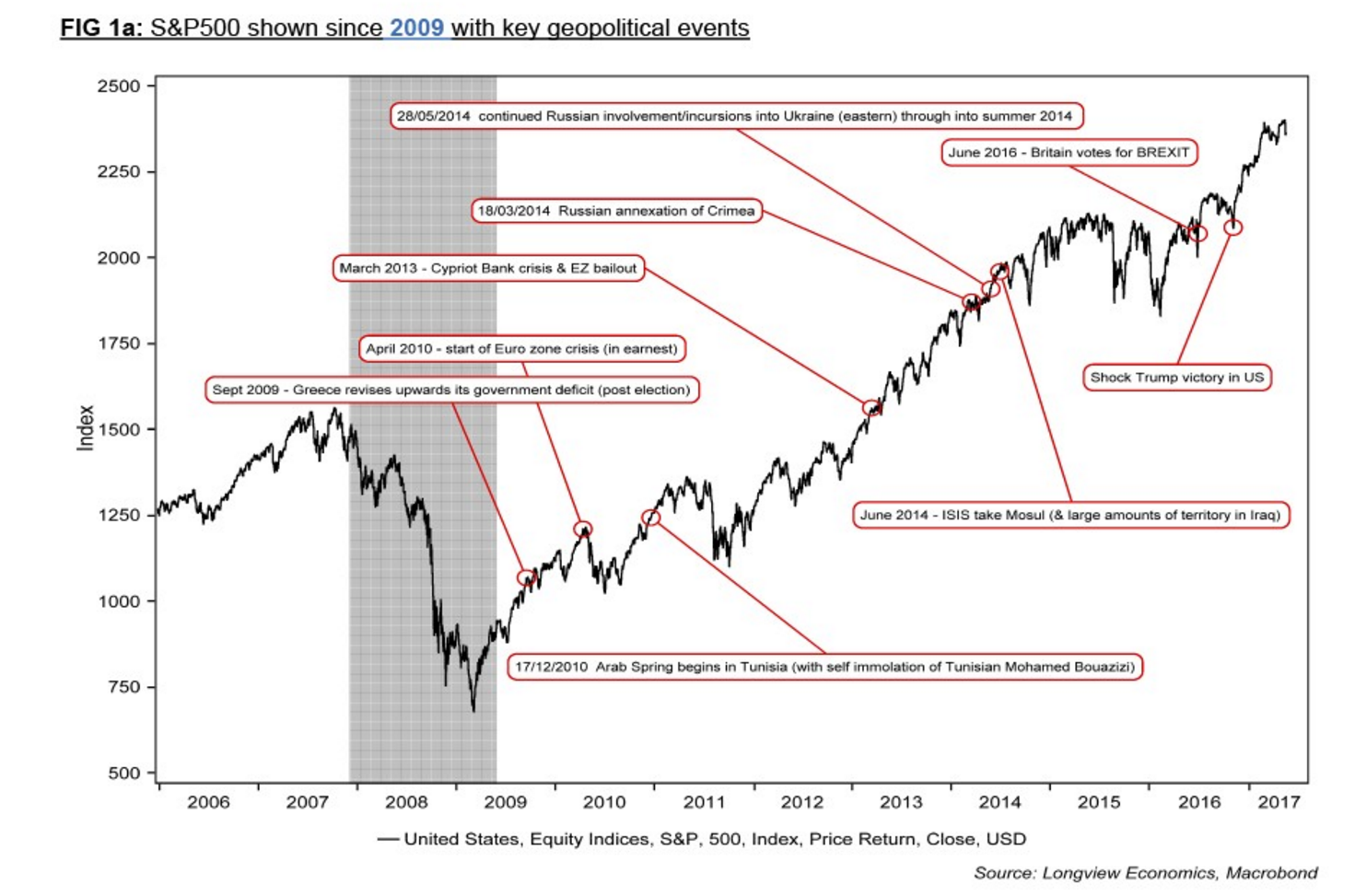How much does geopolitics really matter for markets?
Last Wednesday’s wobble sent market participants and commentators scrabbling for the history books. With reports that Trump asked ‘James Comey to end a probe into the former national security adviser’, geopolitics seemingly became front and centre of investors’ minds (with markets wondering about possible impeachment).
If it happens, Trump will be the 4th President to be impeached (the other three being: Andrew Jackson 1868, Richard Nixon 1974 & Bill Clinton 1998 – of note, the charges failed against Jackson and Clinton, while Nixon resigned before proceedings concluded).
A cursory glance at the two charts below, though, shows how the impact of geopolitical events on the market is typically overstated.
Major geopolitical issues since 1990, for example, include the Russian annexation of Crimea and subsequent invasion of eastern Ukraine (March - May 2014); the Arab Spring (Dec ‘10); the Cypriot banking crisis (Mar ‘13); BREXIT (Jun ‘16); the assassination of the Israeli President (Nov ‘95); ISIS capturing Mosul (Jun ‘14); and many others – see FIG 1 & 1a.
What’s most notable about those events, though, is the absence of any meaningful impact on major global equity markets (as proxied here by the S&P500). Some events seemingly generate 1 – 3 day wobbles in the S&P500, while it’s only some, more major events (like the Euro crisis), which have a significant market impact. Most pass without impacting the stock market at all. As we have noted many times before, cyclical bull markets are about the stance of monetary policy, an ongoing US/global economic expansion (and therefore earnings growth), and the absence of significant shocks (and in particular shocks which impact the risk premium and/or the outlook for earnings/economic growth).
The list of geopolitical events which have become ‘significant’ market relevant events over the years, is short and includes: The Cuban missile crisis, WWII, oil shocks of the 1970s, and the Korean War (1950), amongst a handful of others.
You can click here for higher-resolution charts, or see below: (VIEW LINK)
FIG 1: S&P500 shown since 1990 with key geopolitical events

FIG 1a: S&P500 shown since 2009 with key geopolitical events



